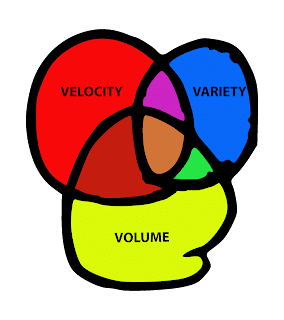Spreadsheets Aren't the Solution to Everything
If I ask you what is the most widely used Business
Intelligence / Analytics tools in the world, would you know the
answer is Microsoft Excel?
Excel and spreadsheets in general have been the go-to tool
for business analysts since the days of Lotus 1-2-3. Unfortunately, the growth of data has increased
exponentially over the last decade along with how fast new data is being generated, and
the variety of data that is available. Relying strictly on spreadsheets to sort through that data
and garner usable insights may limit what can be gleaned. Don’t misunderstand me,
spreadsheets are still an essential part of data analysis, but they are not the
only business intelligence tool an analyst should be using. To unlock deeper
insights, enhance efficiency, and keep up with the rapidly evolving data
landscape, analysts should explore a broader range of business intelligence
tools and techniques.
If your data set is a small to medium size one, with a fairly well defined structure, a spreadsheet is a great tool. In fact in my career a lot of what we have done and continue to do is develop data sets that can be exported from other tools and used in Microsoft Excel.
But there are situations where a spreadsheet isn't the solution to the analyst's needs. It could be a data set with more than a million rows, or complex situations where there are involved relationships, crossing many JOINs. Bringing data in from a number of different systems can involve a lot of cleansing and editing that dedicated systems can often do more efficiently and automatically once the process is defined. And as the speed of data increases, more and more businesses are looking for real-time information that is better suited to business intelligence tools.
"A picture is worth a thousand words" is an idiom that most people are familar with. Applying it to analytics, we can restate it as "A visualization is worth a thousands rows of data". Dedicated BI tools can offer functionality beyond what spreadsheets can do, making it easier to sift through large data sets and uncover insights quickly. Presenting a summarized data set in a visualization gets the message across very quickly.
Does that mean I am anti-spreadsheets? Nope, just that they aren't the solution for every reporting need. Spreadsheets are a great tool but if it can't be the only tool in your reporting toolbox. Like the guy who only has a hammer, everything then gets treated like a nail.




Comments
Post a Comment